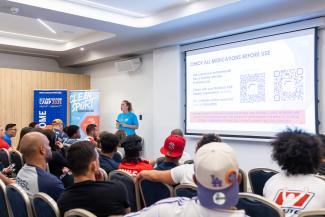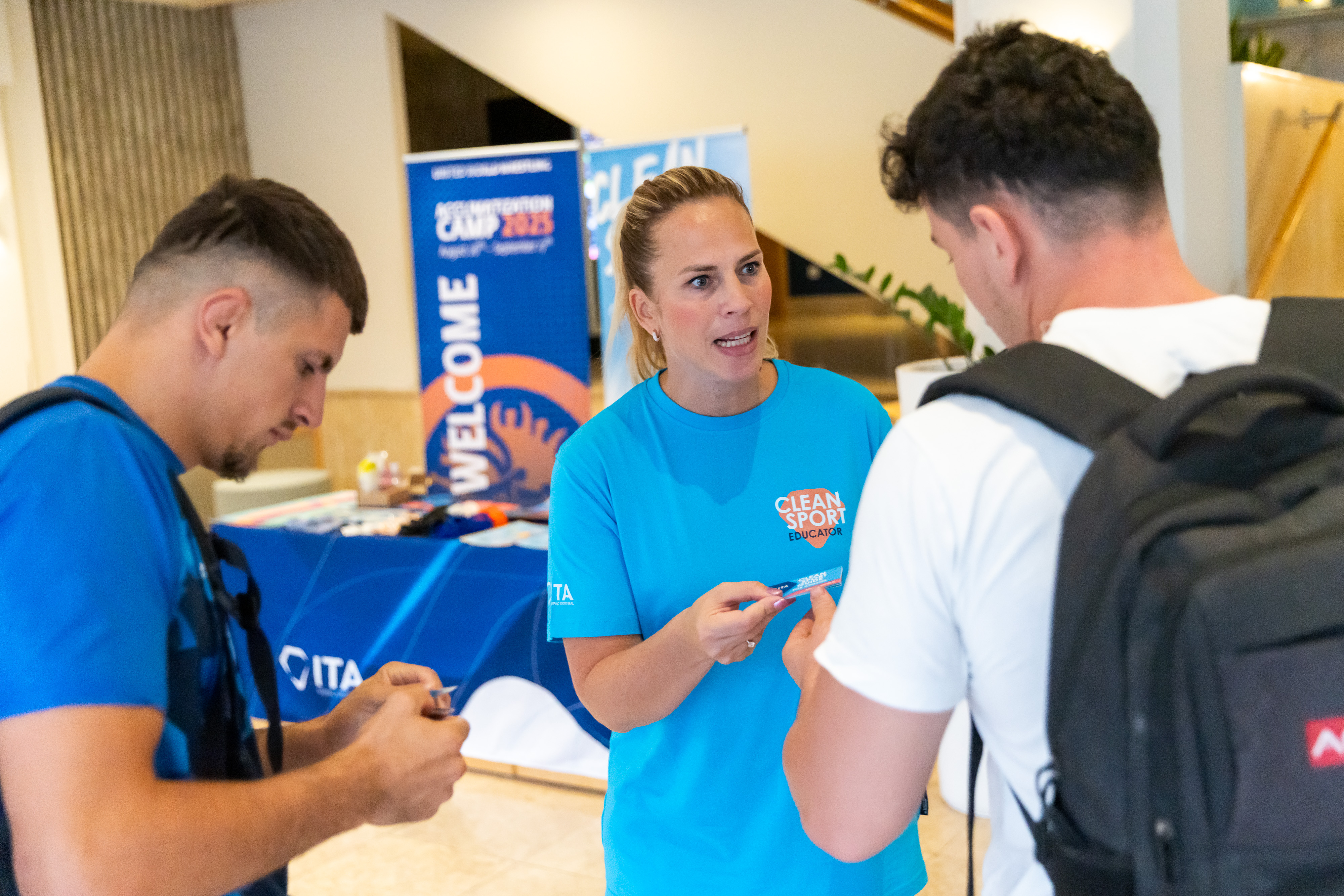Beach Wrestling World Series grows to 3 continents in 2023
Tuesday, March 7, 2023 - 13:01 By United World Wrestling Press

CROSIER-SUR-VEVEY, Switzerland (March 7) -- The Beach Wrestling World Series continues to gather popularity with its incredible athleticism, non-stop action, easy-to-understand points system and rules, as well as a growing recognition in relevance from the world of sports.
Already the fastest-growing style on the United World Wrestling (UWW) calendar, beach wrestling gets underway in a brand new location. The season opener will take place in Buenos Aires, Argentina on May 7-8, following UWW's senior Pan-American Championships, It will mark the return of the World Series to the continent for the first time since the inaugural season in 2019.
The tour will then head to its first-ever stop on Asian sands as it touches down in Singapore on June 10 and 11, making its debut on the continent.
The first two stops of the World Series are also qualifying events for the ANOC World Beach Games, which will take place in Bali on August 11 and 12. Beach Wrestling is a core event at the Games.
The third stop will see the wrestlers move to the sensational sands of Saint Laurent du Var, bringing that Cote D’Azur French flair to the season for the third year in a row with the event doubling up as the sport's U17 and U20 European Championships.
The penultimate event will take place on September 9 and 10 on magical Mamaia Beach in Constanta, Romania which has been the venue for the final stop of the World Series’ past two seasons. With the U17 and U20 World Championships taking place in the days before, the sand will be warmed up for the seniors to show their skills.
The final stop will see the Kings and Queens of the Beach coronated in Sarigerme, an area of marvelous Mugla, Turkey, and the site of the 2022 season opener, on October 14 and 15 as the curtain comes down on another year of the strongest show on the sand.
The Beach Wrestling World Series is popular with fans and athletes alike, providing a festival atmosphere as the sun shines on the sand, the music plays and the spectators’ "ooohs" and "ahhhs" accompany the wrestlers on their way to gold.
The adrenaline-filled action helps feed the vibe and it’s easy to see why the sand side crowd continues to grow with each event. With Beach Wrestling being named one of ANOC’s Beach Games core disciplines for 2023 and 2025, the popularity of the sport is sure to continue to grow at the rapid rate it has so far.
More than 700 athletes from 48 countries have participated in the World Series since its introduction in 2019 with 267 women and 445 men taking to the sand with World Series gold in their sights. More new faces, talents and potential title challengers are expected for the new season.
Registration is open for four different weight categories for both men and women, with the men's competing in -70kg, -80kg, -90kg and +90kg, and the women competing in -50kg, -60kg, -70kg and +70kg. Each bout lasts three minutes, or first to three points.
The UWW has put prize money of 1000 Swiss Francs for the gold medalists, 500 Swiss Francs for the silver medalists and 250 Swiss Francs for each of the two bronze medalists. Along with that, the ‘Top Technique’ award for the best move over the weekend, voted by the fans via the World Series’ official Instagram page, will see the winners take home 1000 Swiss Francs for each gender.
Who will take home the gold in this series? Will the Big Gun, Azerbaijan’s Oyan Nazariani make a victorious return after an injury-hit 2022? Will the Glorious Georgians go on another gold run? Will anyone be able to match Romania’s 50kg ‘heavyweight’ Stefania Princeputu? Can the ever-growing Team USA make an impression this year?
Will the impressive Indian team continue its upwards trajectory, or will the Brilliant Bulgarians shine on the sand? It’s anyone’s guess as we head towards the start of the series with competitors from all over the world gearing up for the biggest Beach Wrestling World Series to date.
Tune in to see how the drama unfolds and who will be the Kings and Queens on Sand, come October in Mugla.
Dates and Locations, Beach Wrestling World Series 2023
Stop 1 – Buenos Aires (ARG), May 7-8, 2023
Stop 2 – Singapore (SGP), June 10-11, 2023
Stop 3 – Saint-Laurent-du-Var (FRA), June 29-30, 2023
Stop 4 – Constanta (ROU), September 9-10, 2023
FINAL – Mugla (TUR), October 14-15, 2023
UWW Beach Wrestling
UWW, then known as FILA, codified the form of beach wrestling in 2004. Beach Wrestling is standing wrestling done by wrestlers inside a sand-filled circle measuring 7 meters (23 ft) in diameter. The style originally mirrored the rules used before the use of wrestling mats, and Beach Wrestling has been regarded as the oldest version of international competitive wrestling. The international rules were modified by UWW in 2015, with the current rules allowing wrestlers to score points via takedowns, pushing their opponent out of bounds, or bringing the opponent down to their back.
Introduced in 2019, the Beach Wrestling World Series crowns the world champions during the finals of the five-legged competitive season in beach locations across South America, Asia and Europe.
Weight Classes
Women: 50kg, 60kg, 70kg, and +70kg
Men: 70kg, 80kg, 90kg, and +90kg
Find out all about the Beach Wrestling World Series at www.beachwrestling.org
Follow us on social media
IG @uwwbeachwrestling
FB @ Beachwrestlingworldseries
YT @ https://www.youtube.com/channel/UCU82VJze6xdYhhp3uEFA_tw/featured - watch the competitions live



Share your thoughts.
Comments